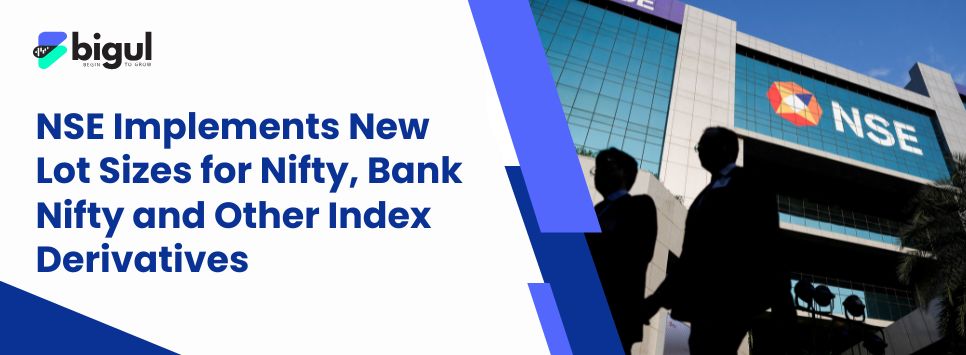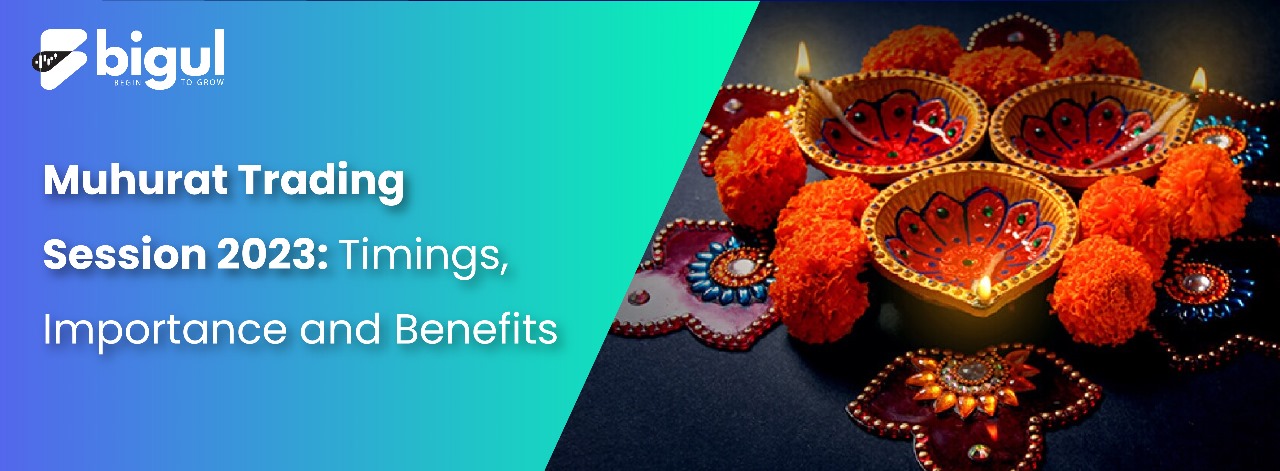In 2023, Muhurat Trading is scheduled for November 12, coinciding with the celebration of Diwali. During this limited time frame, individuals have the opportunity to make investments and engage in trading activities, all while holding the belief that it may bring about prosperity and good fortune throughout the year. The atmosphere during Muhurat Trading is festive and distinct, with market participants embracing the spirit of Diwali as they carry out their transactions.
Here are the specified timings for the 2023 Muhurat Trading Session:
Block Deal Session: 5.45 pm to 6.00 pm
Pre-Open Market: 6.00 pm to 6.08 pm
Normal Market: 6.15 pm to 7.15 pm
Call Auction Session: 6.20 pm to 7.05 pm
Closing Session: 7.25 pm to 7.35 pm
What happens in Muhurat Trading?
Unlike regular weekdays when the market operates from 9.15 am to 3.30 pm, Muhurat Trading deviates from the norm, offering just a one-hour window at a predetermined time. This unique trading session typically follows a structured format:
Block Deal Session: In this part, two parties, the buyers and sellers, agree to purchase or sell a security at a fixed price and subsequently notify the relevant stock exchange about the transaction.
Pre-Open Session: This brief eight-minute session determines the equilibrium price for the upcoming trading period.
Normal Market Session: This one-hour segment mirrors the regular market sessions and allows for actual trading activities.
Call Auction Session: This session is specifically designed for trading illiquid securities.
Closing Session: During this phase, traders and investors can place market orders at the closing price.
What is Muhurat Trading?
“Muhurat” is a sacred period according to Hindu beliefs, signifying an auspicious moment to commence new and favourable endeavours. Within the realm of the stock market, there exists a special and auspicious occasion known as Muhurat Trading. This event takes place during Diwali, one of India’s grandest festivals. It’s considered an auspicious time for both investors and traders to participate in trading activities. Muhurat Trading opens up a one-hour trading window, specifically during the Diwali festival, symbolizing the opportunity for investors and stockbrokers to engage in trading or investment during this auspicious moment. According to the Hindu calendar, Diwali is celebrated as the New Year in India, marking the commencement of Vikram Samvat 2080. The Muhurat window on Diwali signifies that engaging in trading or investment on this day will likely result in positive returns, prompting the stock exchange to offer this one-hour trading window to individual investors and stockbrokers.
Importance of Muhurat Trading Hour
Muhurat Trading holds more than just financial significance; it is deeply rooted in culture and tradition. The convergence of investments and festivals underscores their importance, creating an ideal setting for new entrants to the market filled with enthusiasm. During Muhurat Trading, all eyes are on market trends, as businesses of all sizes are encouraged to buy and sell stock options during Diwali when many are planning for the upcoming financial year.
Over the decades, this practice has been embraced by brokerage firms, and the pursuit of profits continues to drive investments to this day. However, it’s vital for investors to exercise careful decision-making, as not all Diwali trends yield the expected returns. There are three primary reasons that make Muhurat Trading particularly endearing to investors:
Auspicious Time to Invest: The Muhurat Trading hour is believed to be a propitious moment to invest for long-term prosperity. With the onset of the new year, business owners and numerous brokerage houses and stock exchanges embark on a fresh accounting cycle.
A Magnet for New Investors: The new year often brings about new investment opportunities. Driven by its cultural significance, the Muhurat Trading Hour entices many new investors to enter the stock market. This day serves as a catalyst for novice investors to gain insights into the market, especially passive investors.
Potential for Intraday Gains: Earning profits on an auspicious day can be highly appealing. Many technical analysts and intraday traders leverage their skills to seize opportunities for profit. However, it’s crucial to exercise caution, as an auspicious day does not guarantee automatic profits, and prudent investment of hard-earned money is advised.
History of Muhurat Trading
In India, business owners and stockbrokers mark the start of their new fiscal year on the auspicious occasion of Diwali. They establish new accounts for the upcoming financial year, and the broking community carries out a special ritual called Chopda Pujan, during which they venerate their financial records. On Diwali, they also pay homage to Lakshmi, the goddess associated with wealth, fortune, power, and prosperity.
There are various beliefs surrounding Diwali Muhurat Trading. One non-data-supported theory suggests that Marwari traders and investors refrain from allowing money to enter their homes on Diwali, leading them to sell their securities. In contrast, Gujarati traders and investors tend to buy shares during this period.
The Bombay Stock Exchange (BSE), Asia’s oldest stock exchange, initiated the tradition of BSE Muhurat Trading in 1957. The National Stock Exchange (NSE) has been conducting Diwali Muhurat Trading since 1992. Over time, this ritual has transformed into a symbolic gesture for individual investors looking to make investments.
While Muhurat Trading does not guarantee profits, it is believed to have a positive influence on one’s wealth throughout the year. Historically, the BSE Sensex has rarely disappointed investors on this auspicious day. In recent years, the Sensex has consistently closed in the green during the Muhurat Trading hour. Here is the performance data for the past five years of both the NIFTY and SENSEX.
| Year | SENSEX | NIFTY |
| 2022 | 0.90% | 0.88% |
| 2021 | 0.50% | 0.50% |
| 2020 | 0.45% | 0.47% |
| 2019 | 0.49% | 0.37% |
| 2018 | 0.70% | 0.65% |
Things to keep in mind during Muhurat Trading:
While Muhurat Trading is considered an auspicious time, it’s essential to recognize that not every stock investment made during this period guarantees profits. Before you engage in stock trading, there are several key considerations to bear in mind:
- Date & Time: Muhurat Trading is scheduled for November 12, 2023, at 6:00 pm.
- Volatility: This time of year is favoured by many traders and investors, resulting in a significant number of market participants. Consequently, the market can become highly volatile and lack a clear direction. If you intend to capitalize on this volatility, it’s advisable to focus on stocks with high trading volumes, given the limited one-hour trading window. It’s crucial to understand that investments during Muhurat Trading do not come with a guarantee of returns.
- Day Trader Caution: Day traders should pay close attention to resistance and support levels to make more informed trading decisions.
- Settlement: It’s important to note that all open positions at the end of the Muhurat Trading session will become settlement commitments.
- Stick to Fundamentals:The fundamental principles of investing remain as relevant as ever. It’s imperative to thoroughly understand a company’s fundamentals before making any investment.
- Stay Informed: Be vigilant about investment tips circulating in various groups, social media, news outlets, or any other sources. Many companies promote schemes that may not be suitable for you without proper consideration. It’s advisable to avoid unauthorized or unsolicited advice.
How does Muhurat Trading influence stocks?
Given the inherent uncertainty in the stock market, experts recommend seeking guidance from market experts, brokers, and other knowledgeable sources to effectively manage investments during such unpredictable times. This also holds true for commodities, which are traded alongside stocks and demand the expertise of experienced traders or brokers to formulate portfolio strategies.
Extensive data on the market’s performance during Muhurat Trading hours in previous Diwali events is readily available, as multiple stock brokers frequently publish reports on their performance before and after the trading day.
Looking at the trends of the past decade, the market tends to be bullish in the days following Diwali, presenting short-term investment opportunities for those who prefer lower risk. However, Gold ETFs (Exchange-Traded Funds) during Diwali are generally considered a safer option, as the price of gold tends to be less affected in case the stock market experiences prolonged volatility. Nevertheless, gold prices are expected to maintain a modest positive trend in the short term.
Even if you opt not to invest during Muhurat Trading, it’s crucial to monitor your portfolio due to the heightened activity. Consequently, investment decisions should be made with a long-term perspective and a willingness to consider token investments based on expert advice.
Who can benefit from Muhurat Trading?
For those who place importance on auspicious planetary alignments, Diwali is seen as a time that ushers in wealth and prosperity. Therefore, Diwali can be an opportune moment for individuals who have never ventured into stock investments. If you’re considering this path, it’s advisable to target high-quality companies and approach your stock purchases with a long-term perspective in your investment plan. However, this is particularly relevant for those entering the field of stock trading. It might be prudent to closely observe the market during Muhurat Trading and even engage in simulated trades to gain a better understanding of the process.
Muhurat Trading time is considered ideal for both buying and selling stocks due to the heightened trading activity. Moreover, the markets tend to exhibit bullish sentiment, as the celebratory atmosphere centred around prosperity and wealth fosters optimism regarding the economy and the stock market during Diwali Muhurat Trading. Consequently, it’s a favourable moment for both experienced and novice investors and traders to participate in Muhurat Trading sessions for potential gains. Keep in mind that the one-hour duration of Muhurat Trading contributes to significant market volatility, so it’s essential for new traders to stay alert. Experienced day traders can capitalize on this session, as many investors and traders are actively involved in buying or selling shares to commemorate the auspicious day.
Although the primary focus of Muhurat Trading may not always be profitability, an experienced day trader can achieve substantial gains by taking well-considered positions.




.jpg)





.jpg)
